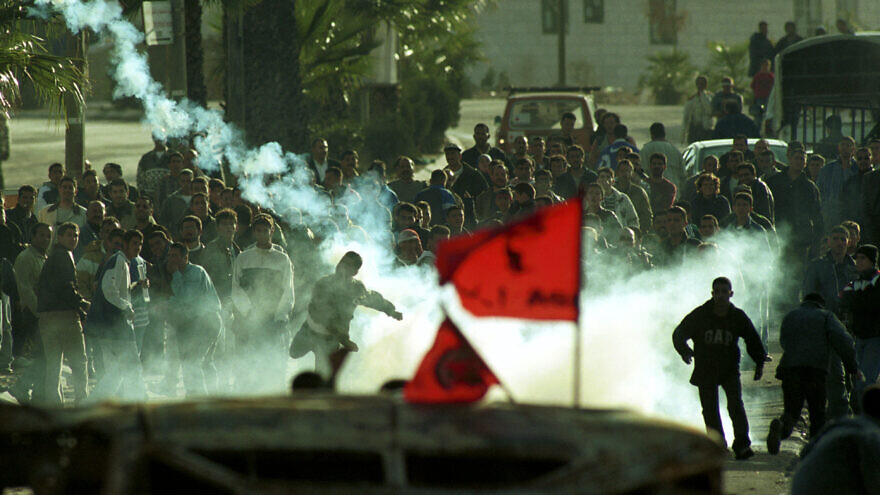Many Americans are shocked at the extreme level of anti-Jewish hate that has been revealed to exist at Harvard University and other elite schools since the Oct. 7 terrorist attacks in southern Israel.
It seems as if not a week has gone by without a new story about the pro-Hamas extremism and/or systemic ambivalence to antisemitism at Harvard. Right before Passover, the Harvard student government approved for a vote a resolution calling for a complete boycott, divestment and sanction of Israel. The petition is from the Harvard Undergraduate Palestine Solidarity Committee—a group so extreme that it has accused a U.S. senator of “support for genocide” and labeled Israel’s Ambassador to the United Nations Gilad Erdan “a war criminal.”
We’re left wondering how this fanatical opposition to Israel’s existence took such firm root at this formerly distinguished Ivy League institution in the first place.
One aspect of this that deserves much closer examination is who Harvard hires to teach its students.
Convicted murderer Nasser Abu Srour, who is currently in an Israeli prison, has a new book coming out just as the Jewish holiday of Passover ends on April 30. The publisher says it is a “passionate autobiography—at once history lesson, prison memoir, metaphysical inquiry, love story, and cry for justice—provides insights into the Israeli occupation and the struggle of the Palestinian people.”
The book is called The Tale of a Wall: Reflections on the Meaning of Hope and Freedom. Luke Leafgren, the Allston Burr assistant dean of Harvard College for Mather House, as well as a lecturer on comparative literature, is its translator.
Before anyone jumps to the conclusion that perhaps Leafgren is just a translator and not anti-Israel himself, consider that he signed a November 2023 statement that read: “A just peace that ends the current domination of Palestinian life by the Israeli military occupation, and provides for the freedom, security, and civil and political rights.” The statement ignores the fact there was no military occupation of Gaza on Oct. 7. In the summer of 2005—with no demands or preconditions—Israel withdrew all its soldiers from Gaza and evicted the area’s 10,000 Jewish residents. Moreover, Palestinian Arab citizens do enjoy full civil and political rights, including serving in Israel’s Knesset legislature and as court judges. In 2022, an Israeli-Arab judge named Khaled Kabub was appointed to Israel’s Supreme Court.
Getting back to Abu Srour’s crimes, in 1993 in Jerusalem, he murdered his Israeli Security Agency (Shin Bet) officer—25-year-old Chaim Nachmani. According to the Jewish Telegraph Agency, Abu Srour and his fellow terrorists “stabbed and bludgeoned (Nachmani) to death.”
Also, it must be noted that even 20 years after he committed that murder, Abu Srour still advocated violence: “As long as there is no diplomatic horizon, the intifadas will continue, there will be a third, fourth and fifth intifada.”
Does Harvard’s Leafgren approve of violence against Israeli civilians? Because that is exactly what “a third, fourth and fifth intifada” means.
Abu Srour deserves the lifetime prison sentence handed down to him. If he were to be released, one can only assume that the “hope” referred to in his book’s title is the wish to slaughter more Israeli Jews. Clearly, the publication of this autobiography is aimed at creating sympathy for him.
A recent Hillel survey revealed that “two-thirds of respondents (64%) said they are not applying to certain schools because of a perceived rise in antisemitism on that campus.” A New York Times article on March 29 also reported that “applications to Harvard College were down.”
This is good news since Jewish students and parents are correct to avoid Harvard as long as haters like Leafgren remain educators there. There are plenty of other options for getting a higher education in a more welcoming environment.


























